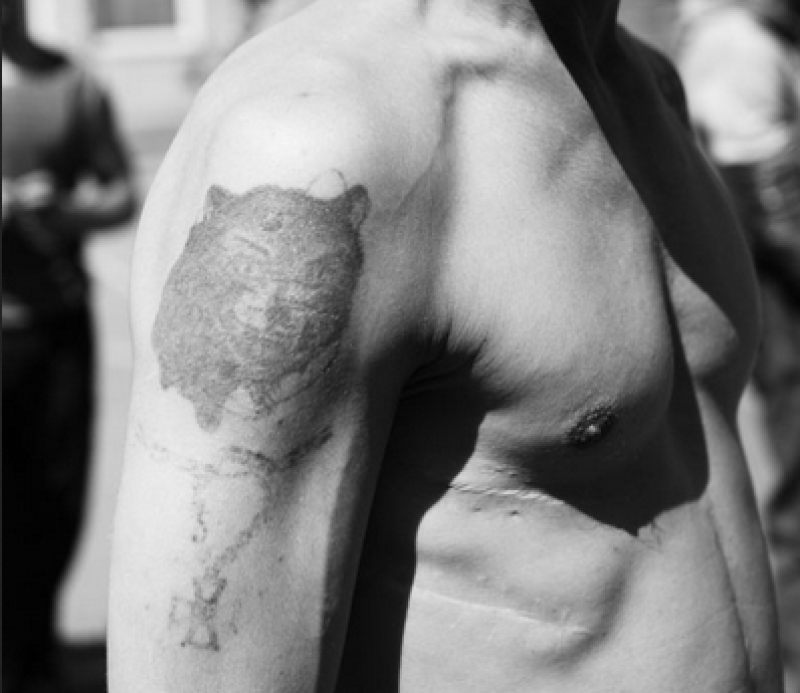The 30 men and four women on trail are alleged members of the Tbilisi clan that operated around Strasbourg under the guidance of Kakhaber “Kakha” Shushanashvili and his brother Lasha.
The gang mostly made money by stealing luxury items such as watches, cosmetics, perfumes, glasses, computers and phones in shops and shopping centers across Alsace, Germany and Switzerland.
Shushanashvili, 46, is a Caucasus leader of the vory v zakone, a term used to designate Russian-speaking organized crime groups that originated in the Gulag camps of the USSR, who was sentenced to 15 years in Spain last year before being extradited to France, according to L’Express.
In France, Shushanashvili is suspected of ordering the brutal 2010 hit of Georgian mafia leader Vladimir Dzhemalovich “Lado” Janshia who dragged his bullet-riddled body to a hospital in Marseille, where he died.
He is now standing trial for organized robbery and criminal conspiracy.
Some of the defendants are of Azerbaijan and Armenian origin and the Tbilisi network spans across the Alsace and Paris regions of France, the Atlantic Coast, Germany, the Netherlands and Switzerland.
Prosecutors began to investigate a spill figure in the Georgian underworld called Zurab “Butata” Papuashvili in 2012 and by 2014, the Interregional Specialised Jurisdiction of Nancy (JIRS) joined in as the picture emerged of a Georgian thieves-in-law collective.
Operation Caucasus 67 lead to major arrests in 2015 after months of recording conversations and surveillance. During the arrest operations in the region around Strasbourg called Alsace and the Southern region of Aquitaine, police seized hundreds of items including weapons, smuggled cigarettes and cash as well as two containers with designer clothes found in the Belgian port of Antwerp.
The investigation showed a hierarchical organization lead by Papuashvili, who coordinated different clans of thief soldiers or “chestiorki,” managed a common fund called the “obshak,” and functioned as a mediator between the different “vory”: members who had achieved the high rank of crowned thief.
Two of the defendants were such vory, namely Georgiy Elerdzhiya, 58, who ran his operations from Greece, and Zaza Elikashvili, 44, whose criminal tattoos include wind roses, meaning he is not submissive to anyone, and who lived in the Atlantic seaport of La Rochelle.
The thefts are carried out by low-ranking chestiorki who are often drug addicts that live in Europe as illegal immigrants using Lithuanian forged documents. Ordered by the “smotryachi,” regional leaders ranked below the vory, they go on “runs” or “to the races,” which is how the soldiers refer to stealing.
In one of the recordings, one of the chestiorki says, “Why do we live if we do not steal?”
These low-level pawns are often caught and put in jail, where they can count on support of their brotherhood.
As the smotryachi of the region, Papuashvili supervised about fifty thieves and inmates, whom he supports by using the gang’s obschak. At the same time, he had to please the vor above him, Bidzina Bakuridze. In order to settle disputes, a smotryachi can call on other vory to mediate.
One feud between two thieves over a watch worth 18,000 euros, which is documented in the investigation, called for the intervention of vor Zaza Elikashvili, who came over for an arbitration meeting in Strasbourg.
During his stay, Elikashvili was offered accomodation, drugs and jewels, perfumes and clothes for his wife and daughter.
A top vor, Elikashvili receives money transfers from Canada, Germany, Italy, Portugal and Spain.
The other vor in the trail, Elerdzhiya, moved from Greece to Strasbourg, where he had subordinates ship narcotics and cash to, in 2015. Papuashvili and his chestiorki found him a place to stay, furnished it and even filled the fridge for him.
When Elikashvili felt threatened by an ex-comrade, “Khaka” Shushanashvili provided him with extra manpower. In turn, when Shushanashvili was incarcerated, Elikashvili organized a fundraiser and sent money to his wife.
The trial is scheduled to reach its conclusion on June 15.



